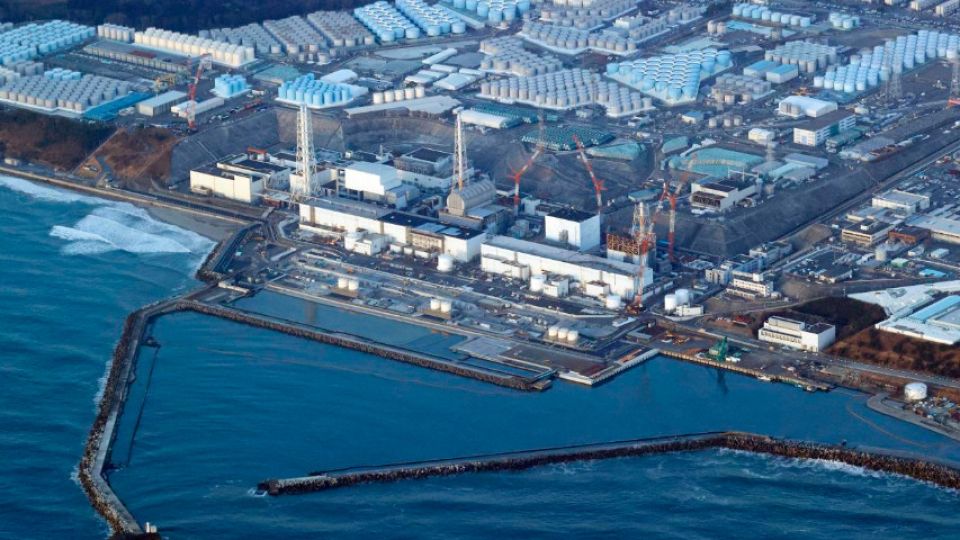July 27, 2022
SEOUL – South Korean President Yoon Suk-yeol said on Tuesday that Japan should seek the consent of neighboring countries before moving ahead with its plan to discharge treated radioactive wastewater from the crippled Fukushima nuclear plant into the ocean.
When asked by a reporter about the Japanese government’s recent approval to build discharge facilities during his regular morning press briefing, Yoon said: “Since my presidential campaign, my position has been that (Japan) should provide a transparent explanation about the issue of dealing with contaminated water for neighboring countries and gain consent.” He did not give any further details.
Japan’s nuclear regulator last Friday formally approved a plan to construct an underground water tunnel and other facilities to dump treated radioactive water into the sea — which was proposed by Tokyo Electric Power Company Holdings in December 2021, according to the country’s Foreign Ministry.
The recent approval came after the Japanese government, in 2021, approved a controversial initiative to release irradiated water into the Pacific Ocean starting from around spring 2023 in light of limited storage space.
The massive earthquake and tsunami in 2011 destroyed cooling systems at the Fukushima Daiichi nuclear power station. As of July, more than 1.3 million metric tons of highly radioactive wastewater, which was used to cool three damaged reactor cores, has reportedly been retained in the plant tanks.
President Yoon’s comment came a day after Rep. Kim Min-seok of the main opposition Democratic Party of Korea called for Yoon to swiftly express the government’s official stance on Japan’s decision and propose counter plans.
“When discharge begins, radioactive materials will flow into our waters along ocean currents, and we will not be able to stop seafood exposed to radioactive substances from being served at the table,” Kim said on his Facebook post.
The lawmaker asked if the Yoon government remains silent in view of potential adverse impacts on its plan to resurrect the nuclear energy sector and its initiative to mend diplomatic ties with Japan.
South Korean Minister of the Office for Government Policy Coordination, Bang Moon-kyu, convened an emergency government meeting last Friday in response to Japan’s plan.
The Yoon government pledged to reinforce maritime radiation monitoring and make every effort to protect public health, safety, and the marine environment. Seoul also said it would convey concerns about the ramifications of the treated wastewater discharge and request information needed to examine the safety through bilateral communication channels with Japan.
The South Korean and Japanese foreign ministries have held a series of working-level meetings on the issue since last December. The director-level talks were held virtually for the first time in June with the participation of related ministries, including Tokyo Electric Power Company Holdings and Japan’s Nuclear Regulation Authority, according to South Korea’s Foreign Ministry.
But the Foreign Ministry has not issued any statements on Japan’s plan — which could stir up anti-Japanese sentiment in South Korea — as of Tuesday evening.
In contrast, the decision by Japan’s Nuclear Regulation Authority resulted in an immediate backlash from China’s Foreign Ministry.
“If Japan insists on putting its own interests above the public interest of the international community and insists on taking this dangerous step, it will surely pay the price for irresponsible behavior and leave a stain on history,” Foreign Ministry spokesperson Wang Wenbin said last Friday during a regular briefing.


